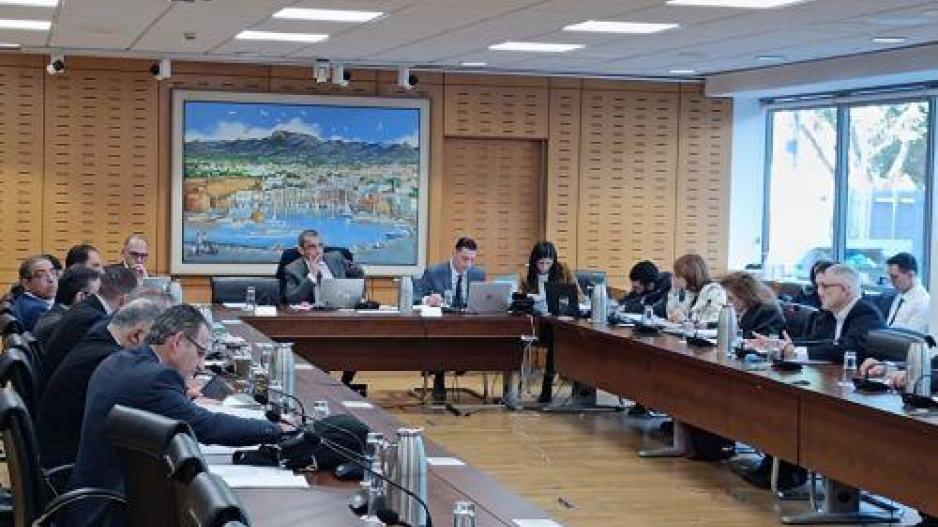AKEL Proposes Tax on Excess Bank Profits
Parliament to Discuss Proposal Targeting Bank Windfalls.
In statements following the Committee meeting, AKEL General Secretary Stefanos Stefanou reminded that the proposal includes a temporary levy of 5% for the years 2024–2025 as a result of increased interest rates. He further proposed that the €100 million expected to be collected (€50 million for 2024 and €50 million for 2025) should, with a political commitment from the government, be allocated to housing policy subsidies, interest rate subsidy schemes, and other social programs.
"We don’t know if the proposal will secure a majority; most parties have not taken a definitive position on its substance," said Mr. Stefanou, expressing his belief that "Parliament should send a message to society that the hardship and pressure felt by many due to rising costs and interest rates, which borrowers have been burdened with, are not being ignored." He also emphasized the need to "send a message against abusive practices and behaviors by banks that harm borrowers."
"We will await the stance of other parties next Thursday, but it is clear that everything ultimately depends on whether there is political will," continued Mr. Stefanou. Quoting the saying, "Those who don’t want to go to the mill spend five days sifting," he remarked that "this is the approach the government is taking."
"I can understand why a bank employee might defend the various interests of banks at all costs. What I cannot understand is why those tasked with defending society ultimately act as the golden boys of the banks," he stressed.
Responding to a question about the potential unconstitutionality of his proposal, the AKEL General Secretary noted that the Attorney General’s Office deemed the initial provision for establishing a Special Solidarity Fund unconstitutional. He added that this provision has since been removed, and there are no constitutional issues with the revised proposal.
Furthermore, he mentioned that the proposal includes provisions for oversight by the Tax Commissioner to prevent abuses by the banks.
Responding to a question about potentially reviewing bank fees and charges, Mr. Stefanou stated:
We are examining various scenarios. Our proposal was informed by European practices.
He noted that four countries (Spain, Hungary, Latvia, Lithuania) impose taxes on banks' excess profits.
Deputy Chairman of the Parliamentary Finance Committee, DIKO MP Chrysis Pantelidis, stated that DIKO, like other parties, will express its position on Stefanou’s proposal during the plenary session.
Asked for his personal opinion, Mr. Pantelidis opposed the proposal but clarified that he would respect the majority decision when the issue was discussed.
In response to a question, DISY MP Savia Orphanidou said that AKEL’s proposal would be discussed within DISY’s parliamentary group. However, she noted that "we have already expressed our concerns and reservations on this matter."
"There are constitutional issues, but even more so, there are political considerations, which we will take very seriously, particularly when it comes to safeguarding public deposits and ensuring the middle class can access loans from strong and stable banks," she emphasized.
Green Party MP Stavros Papadouris supported Stefanou’s proposal "as a message to credit institutions," pointing out that banks could increase the European interest rate while reducing their profit margins "even for six months, without violating any regulation of the European Central Bank."
"In principle, we may not agree 100% with the proposal, but since other institutions have failed or are unable to take action, something should be done through Parliament," he concluded.






